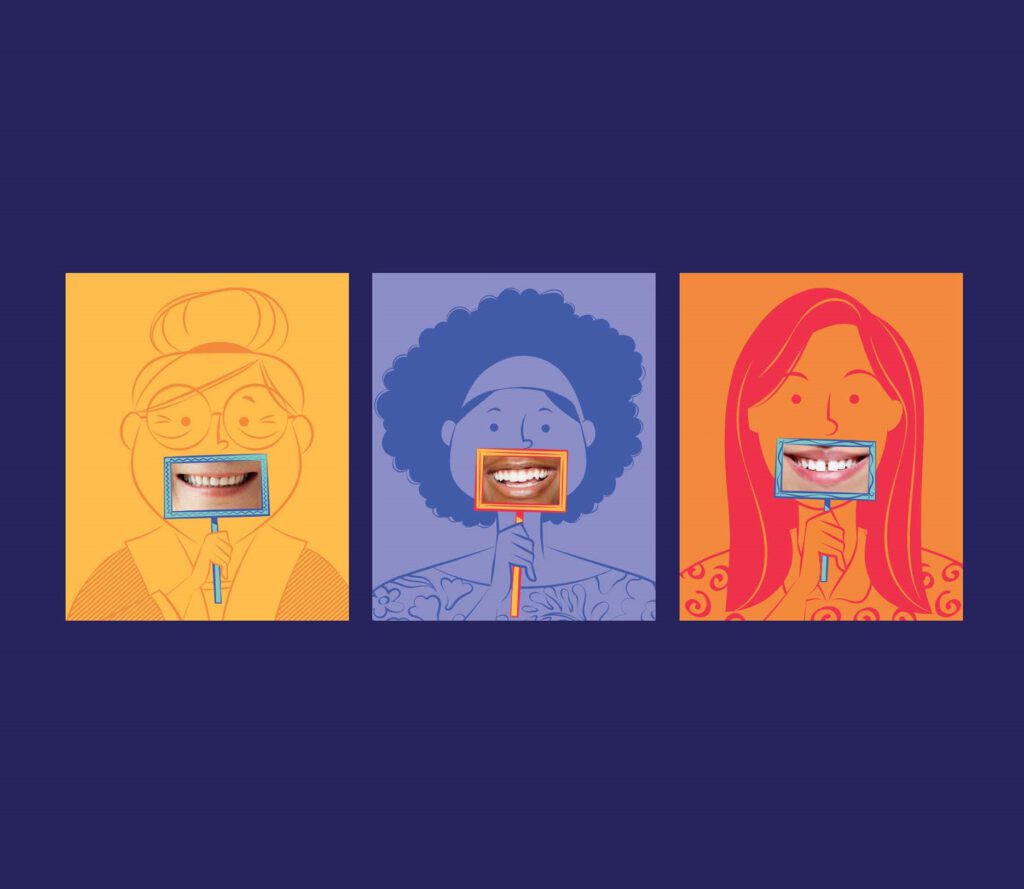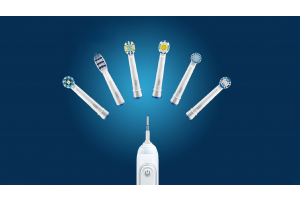
World Oral Health Day is held on the 22nd March and is an initiative of FDI World Dental Federation; an organisation that brings together the world of dentistry in hope to achieve optimal oral health for everyone. FDI relies on individual action worldwide to create a truly global movement, contributing to raising awareness about the importance of oral health.
The 2022 World Oral Health Day is a part of a three-year campaign that launched in 2021, with the theme: Be Proud of Your Mouth. The campaign aims to encourage people to value and take care of their oral health by making the right decisions to protect it. This year the campaign aspires action through highlighting how important a healthy mouth is for our happiness and well-being. Maintaining good oral health can have a positive impact on our general health, well-being, and quality of life, making this something worth striving for.
So, what can you do?
There are multiple steps that you can incorporate into your daily oral care routine to enhance your oral health and keep your teeth and mouth clean and healthy. A few of these have been selected and will be explored in some more detail below, helping you take a step towards being proud of your mouth.
1- Wait Before You Brush: Some acidic food and drinks can temporarily soften the enamel of the teeth, brushing immediately can not only further implement food debris into the teeth but can cause wearing of this temporarily softened enamel, making the teeth more susceptible to decay over time. In order to make your brushing more effective, it is recommended to wait at least 30 minutes after eating before brushing.
2- Use a soft-bristled brush: If you are someone who suffers from sensitivity, it is recommended to switch your brush to a softer one. It is already known that a toothbrush should be changed every 2-3 months or sooner if frayed as the bristles can be abrasive and damaging to the gums. By replacing your brush with a softer one and using a circular motion to brush, the teeth can still be cleaned effectively and without too much pressure.
3- Use Mouthwash: Rinsing your mouth with an antibacterial mouthwash or mouth rinse can help to kill bacteria in the mouth and to fight plaque. After brushing and performing interdental cleaning, the rinse should be swished in the mouth for around 30 seconds then spat out. It is recommended to leave this to continue working in the mouth without rinsing the mouth with water afterwards.
4- Avoid brushing too often: Whilst some may believe that brushing after every meal is essential, this is no longer the case. Brushing too often or too vigorously can cause damage to the gums and enamel. It is recommended to brush twice a day and only to rinse the mouth with water after eating, to dislodge any food particles from between the teeth.
5- Control sugary drinks: It is already well known that sugary drinks should be limited in our diet, however, what you may not know is that if you are going to have a treat, it is better to have it all at once in order to only expose the teeth to sugar once. When constantly exposed to sugar, bacteria in the mouth feed off the sugar supply, metabolizing it into lactic acid. This then starts to dissolve the minerals in your teeth and can potentially lead to cavity formation if left unbrushed.
6- Perform Interdental Cleaning: Last but certainly not least, you should never neglect the importance of interdental cleaning. Brushing the teeth alone is only able to clean around 60% of the tooth surface, leaving a large amount of space, which the brush cannot reach, prone to bacteria and plaque build-up. In order to enhance the effectiveness of your oral care routine, it is important to incorporate some sort of interdental cleaner such as floss into your routine to target the interspaces. To find out more click here.










